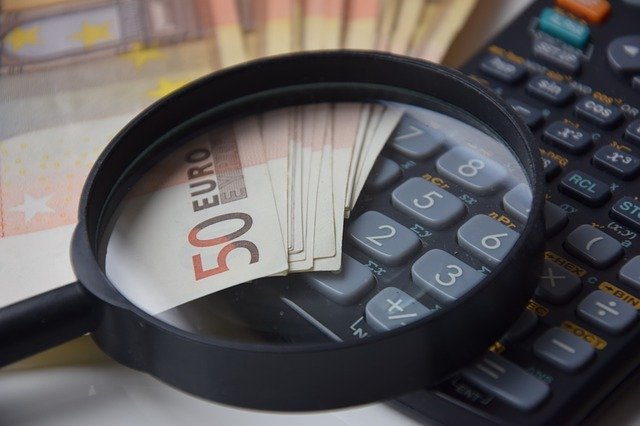Personal Finance
Quick And Easy Personal Finance Tips That Work
It can be difficult and tedious to track of your personal finances. You can save yourself from negative financial troubles by keeping a close watch on every aspect of everything that happens in your finances. Online banking can make it easier to track your funds, but you have to know how you spend your income.
Writing down your monthly expenditures can help you understand where your money is going. If you are writing things down in a journal and you slack off it will never work for you. If you list your expenses in a noticeable area, such as on a marker board, this may help. By seeing it frequently, it will stay fresh in your mind.
Do not waste money on something that promises to make money overnight. This is something that many Internet marketers fall victim to. Learn as much as you can, earning it through hard work and patience.
If you really want to immediately improve your financial situation, cease from paying the full price for anything. Drop your loyalty to specific brands and purchase items which you have coupons for. If you always buy Purina Cat Chow, but this week’s online coupons has a coupon for Fancy Feast, you might be able to get the Fancy Feast for less than the Cat Chow for once.
Restaurants in popular tourist areas and hotels will overcharge you, so find out where the locals eat.You can find food that is cheaper and great tasting local cuisine.
Avoid excessive fees when investing. Long-term investment comes with a variety of fees. The fees they charge play a big role in your total return. The two things to watch out for, generally, are unreasonable broker commissions and suspiciously high fund management costs.
In today’s volatile economy, spreading your money into different areas is a great idea. Put some in a pure savings account, but also invest some in stocks, invest some money in stocks or gold, and even gold. Use all or some of those ideas to make sure your money is safe.
Always know when to file your income taxes with the IRS. If you will be receiving a refund, file early to receive your money more quickly. It is a better idea to file near April 15th if there is a chance the you owe the government money in taxes.
Buy your food in bulk to save both money and time. Buying product in bulk is always cheaper when you actually use everything you purchase. A lot of time will be saved by cooking a week’s worth of the week.
If you’re married then you want whichever one of you that has the best credit to apply for loans. If you are suffering from a bad credit rating, understand that correcting this is a gradual process. Keep working on restoring the credit of both spouses so that your financial liabilities can be equally shared.
Avoid the large fees when you invest. Brokers that deal with long term investments charge fees for making use of their services. These fees will reduce your total return. Avoid using brokers who have high overhead or take a huge cut for themselves.
Having an account for rainy days is a wise way to prepare for emergencies. You should also save for specific goals.
Patience can save you a lot of money when considering your money. It is quite tempting to run out and purchase the latest electronics immediately. If they would just be patient and wait a bit, you can get the same products for less. You will then have much more money saved aside.
If you have a flexible spending account, use it. A flexible account will save you money if you use to pay medical bills among other things. These types of accounts are designed so that you may save a set amount of money before taxes to pay for future incurred costs. There are certain conditions to these accounts, and you will have to talk with a tax professional.
The payments on two smaller balances can be lower than trying to pay off a card that is maxed out.
If somebody is thinking about getting something that costs too much they may want to ask their family to help them out. If it’s something that the whole family could find a use for, like a new TV, then the family may be able to be convinced to put their money together.
Credit Card
Do not underestimate the role that a balance on a credit card will have in regards to your FICO score. The higher your credit card balances are, the more of a negative impact they will have on your score. As soon as you pay down the balance, your score will start to improve. Make sure to keep your card balance at least 20 percent below its maximum limit.

Stop charging the credit card that you cannot afford. Pay down the complete monthly balance before you start using your credit card again.
To quickly lower your debt, pay off the accounts that carry the highest interest rates first. You might want to spread your payments evenly to all of your bills, but starting with those those high interest cards is cost efficient and ultimately better. With credit card companies poised to raise rates again, this can be a wise move.
A lot of credit card companies give rewards or free air fare. Many hotels will take frequent flier programs allow you to redeem miles for reduced rate motel stays.
To make saving money as easy as possible, consider having money automatically transferred from your checking account into a savings account. This is a sacrifice, but your savings account will quickly grow.
The easiest way to deal with debt like the plague. Think about the time a particular purchase will take you to pay it off. You shouldn’t make any charge that’s not imperative and can’t be paid off within 30 days.
Take a hard look at how you think about your money and make your financial decisions. If you want your personal finance to improve, you have to take into account how you’re spending your money first. Make a good list of what you believe about material possessions and money, and think about what has triggered that from your past. You’ll be better equipped to get past this and get into better habits in the future.
Flexible Spending Accounts
Make sure you do not repeat the same financial mistakes that you have made in the past. If its taken you some time to get back on track with your credit, use that as a learning tool to keep yourself out of debt. If you are not making the salary that you should be, make that a lesson to you to remember to negotiate more with your next opportunity. Learning any personal finance lesson can make or save you money in the future. Know that what you know today is more then you knew yesterday, and every bit of knowledge puts you in a better financial situation in the future.
You should use a flexible spending accounts if they are offered by your employer. Flexible spending accounts can help you save money on medical costs and daycare expenses. These accounts let you put some money before takes to pay for future incurred costs. There are limits to the amount allowed to be placed in a flex spending account, and you will have to talk with a tax professional.
One strategy for staying on budget is to use more than one checking account. You can use one account for fixed expenses and the other for those expenses that are variable. This is a good way to keep track of money, where it is going, and if you will have enough for expenses.
You can find coupons online that might not see in stores or newspapers.
Start saving as soon as you can to better your personal finances. Do not wait, it is important to view saving as a priority. Put part of your paycheck into savings just as if you were paying a bill. By doing this you build a safety cushion for your finances.
To ensure timely credit card payments set up an automatic monthly bill pay through your checking account automatically.Even though you may not be able to pay off your credit card balance each month, always make on-time monthly payments toward your credit card debt. If you schedule an automatic debit of your checking account, late payments never happen and you can pay more than the minimum if you happen to have some extra funds free.
Maintain a high credit score. Retaining a higher rating ensures lower interest rates and credit cards. A certain minimum credit score is also a necessity if you want to rent a home, get utilities hooked up, or even just buy a cell phone plan. Only take out credit that you will be able to afford and be timely with, to get your rating higher.
Keeping track of your expenses can save you from banks charging overdraft fees or getting in debt. If you monitor your own money, it will help you to feel more confident about your personal finances.
Write yourself a budget and stay with it. You might think your expenses don’t exceed your income, but chances are you are wrong. Keep track of all your purchases, even the small ones. Once a month, look at everything you have bought. By doing this, you will know where you need to cut costs.


